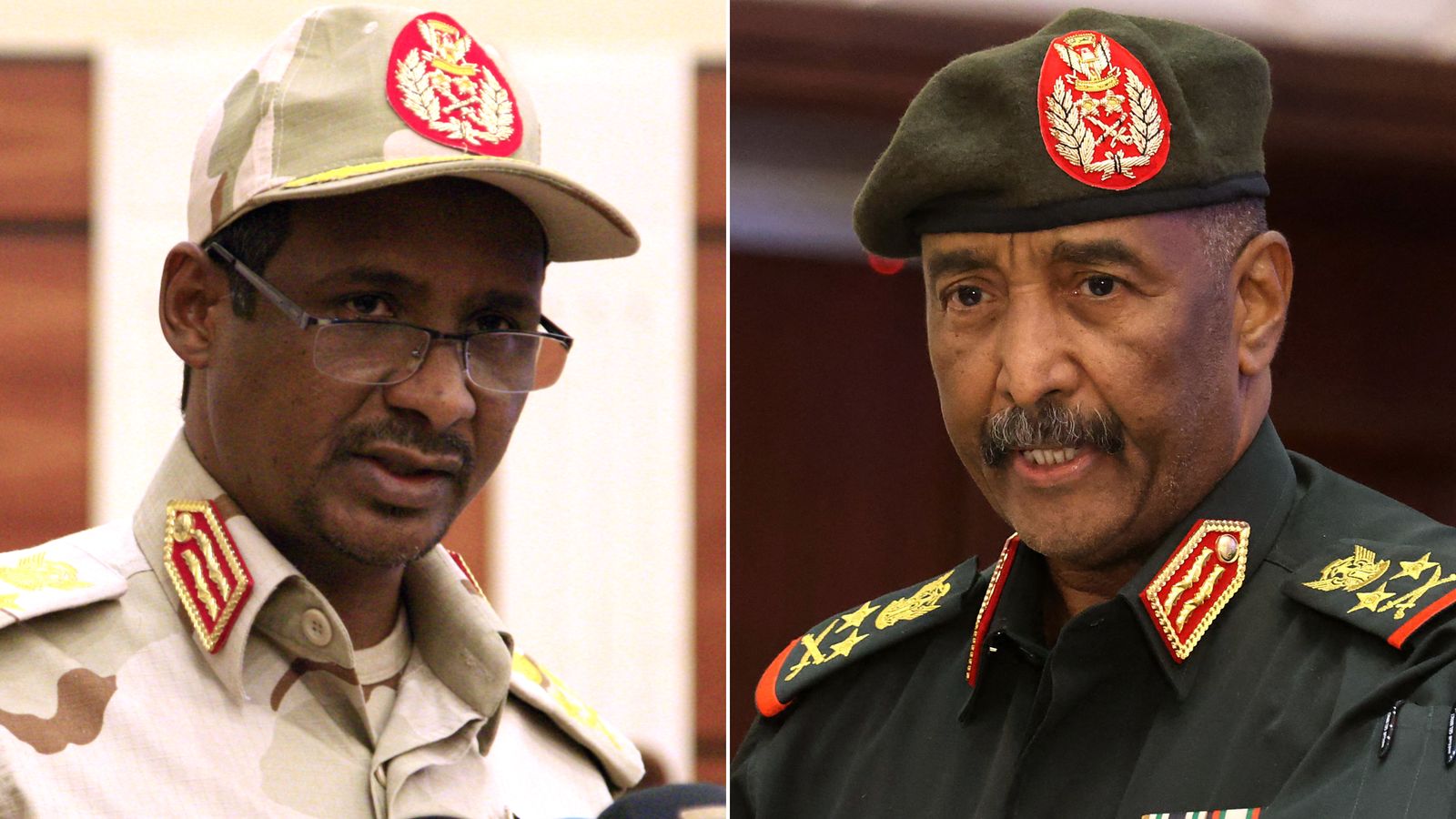In nearly three weeks now, the world has been gripped with killings, maimings, displacements and massive destruction of the little infrastructure in the Sudanese capital, Khartoum, in what is largely a civil war inspired by two military adversaries who have no regard for human lives and dignity.
The war in Sudan, which began on April 15, between the government forces led by the military chief and de facto leader, General Abdulfatah El-Burdham and those loyal to General Muhammad Hamdan Digalo, the leader of the Rapid Support Forces (RSF), has so far led to the deaths of more than 400 people, while over 3,000 have been injured.
It is the climax of year-long tension in the country as political and military leaders failed to agree to a transition programme that will usher in a civilian administration, which has been on since the ouster of strongman Omar Al-Bashir in 2019, following a popular uprising.
El-Burdham staged a coup in 2021 against the transition government that was set up after the fall of Al-Bashir and took up absolute power.
Since then, there have been disagreements on the way forward for the beleaguered country over the transition programme, which finally led to where we are today.
It is unfortunate that Sudan, a country rich in minerals and other natural resources, has been jumping from one tragedy to another in the last 50 years. The more painful is the fact that this was largely caused by its leadership, whose main aim has been to further their ego and wealth no matter the circumstances of their people. From Ja’afar El-Neimeri to Omar Al-Bashir and the present leadership, the story has been the same: agony and more agony for the ordinary Sudanese.
Bad management of the vast country’s resources has been characteristic of all of these governments, which left ordinary people worse off. This is coupled with wars in Darfur and South Sudan, among others, also resulting from the bad governance of the past leadership.
Daily Trust believes that it is time to save the Sudanese people from these agonies inflicted on them by their leaders. It is quite apparent that the present leaders are engaged in the fight only for the resources of the country and not anything else.
Thus, we note with concern that more than two weeks into this carnage, which has resulted in death, destruction and displacement, the international community has not come up with a united effort to deal with the situation. All the noise we hear is about a worthless ceasefire, apparently to enable major countries to evacuate their citizens. The United Nations, the African Union and the Arab League owe it to the ordinary Sudanese to ensure his safety and well-being in their country. We believe that together they can muster the necessary power to bring the warring sides to the negotiation table. They also have the wherewithal to enforce sanctions against any belligerent side.
It should be apparent to all now that the world’s major powers would not bother about where Sudan goes from here. Reports have already indicated that the two sides have the support of powerful outside forces that want to exploit the natural resources of the beleaguered country.
For Africa and the Arab world, Sudan remains a very important country to us, and its stability should be paramount. It borders at least five countries, which will be directly affected by its disintegration in addition to the ripple effect it would send to other parts of Africa and the Arab world. It also stands in the way of an amicable resolution of the River Nile resources, which directly affect Egypt and Ethiopia.
Africa is still contending with senseless wars in Libya, Mali, Burkina Faso, Chad, the Democratic Republic of the Congo and the Central African Republic. It will be sad if we allow another senseless one when we are yet to solve others.
The belligerent leaders at the centre of the carnage in Khartoum must be told in no uncertain terms that Africa will not tolerate this madness again. They should be told clearly that they should respect the right of ordinary Sudanese to live in peace. It should be made clear to them that the fortunes of Sudan belong to Sudanese and should not be allowed to be traded to some outside merchants at the expense of the blood of ordinary Sudanese.
It is a duty that the international community, especially these bodies, owes Africa and the Arab world. Enough is enough.

 Join Daily Trust WhatsApp Community For Quick Access To News and Happenings Around You.
Join Daily Trust WhatsApp Community For Quick Access To News and Happenings Around You.


